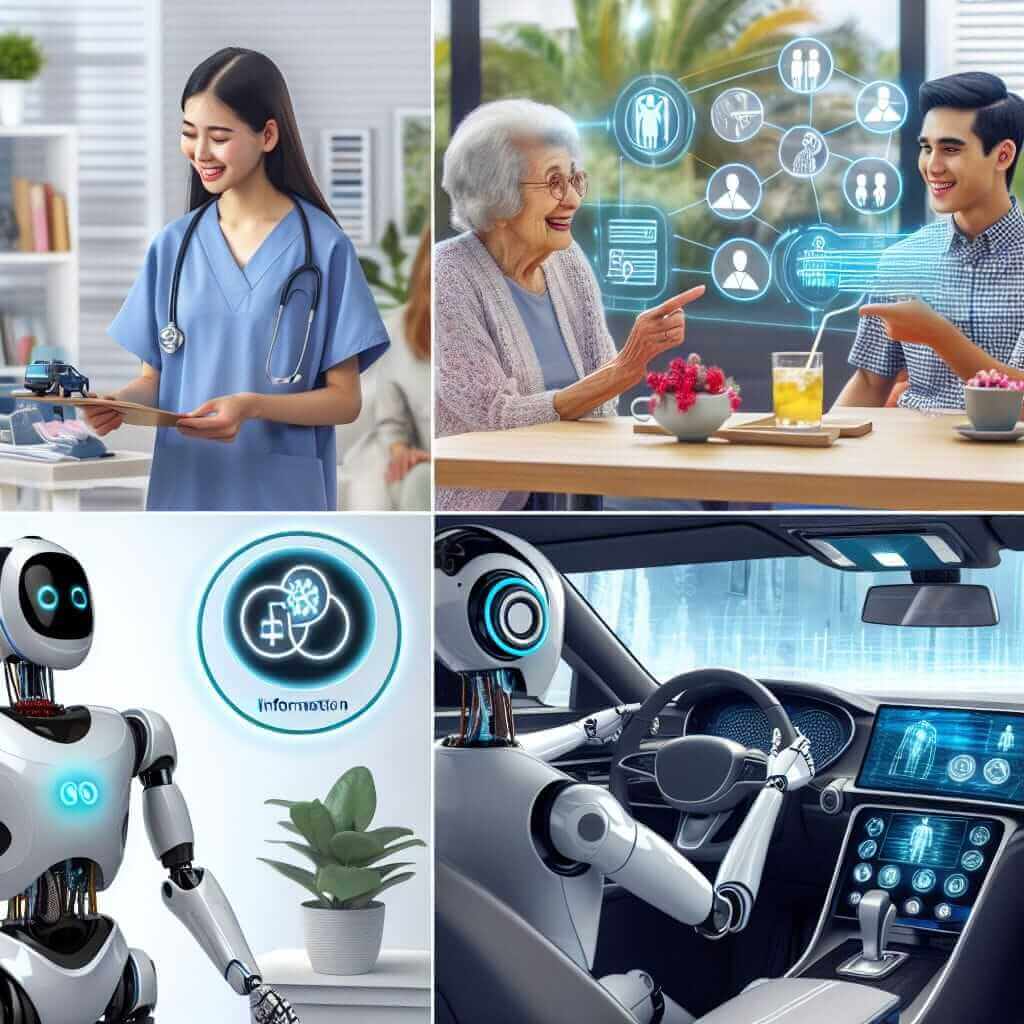The Speaking test in IELTS aims to assess your English-speaking abilities. The examiner will evaluate various elements, including fluency, coherence, lexical resource, grammatical range, accuracy, and pronunciation. One commonly asked topic that you might encounter is describing a technology that is changing people’s lives. This question is particularly popular due to the rapid advancements in technology and its impact on daily living.
In this guide, we will explore potential questions and model answers designed to help you prepare extensively for this part of the exam.
II. Main Content
1. Part 1: Introduction and Interview
Common Questions in Part 1:
- What kind of technology do you use in your daily life?
- Do you think technology has made your life easier or more complicated?
- What technological devices are most popular in your country?
Sample Answer for “What kind of technology do you use in your daily life?”
In my daily life, I utilize a variety of technological devices, but the ones I use the most are my smartphone and laptop. My smartphone helps me stay connected with my family and friends through various social media platforms, while my laptop is essential for my work as it enables me to create and manage documents, attend virtual meetings, and conduct research online. Additionally, I use smart home devices such as smart lights and a smart thermostat to make my living environment more comfortable and energy-efficient.
2. Part 2: Long Turn
Cue Card:
Describe a technology that is changing the way people live. You should say:
- What the technology is
- How it is used
- What benefits it brings
- And explain how it is changing the way people live
Sample Answer:
One technology that is revolutionizing the way we live is artificial intelligence (AI). AI is a branch of computer science that focuses on creating machines capable of performing tasks that typically require human intelligence, such as speech recognition, decision-making, and language translation.
AI is widely used in various sectors:
- In healthcare, AI helps in diagnosing diseases through image recognition and predicting patient outcomes.
- In transportation, self-driving cars utilize AI to navigate and make decisions, significantly reducing the risk of human error.
- In customer service, AI chatbots provide round-the-clock assistance, enhancing customer satisfaction.
The benefits of AI are numerous. It can increase efficiency by automating repetitive tasks, thus freeing up human workers to focus on more complex and creative work. It also improves accuracy in fields like medicine and finance by analyzing vast amounts of data more quickly and accurately than humans can.
Overall, AI is fundamentally changing the way we live by making our daily activities more efficient and reliable. It has the potential to transform various industries, leading to enhanced services and even creating new job opportunities in fields related to AI technology.
Follow-up Questions:
- How do you think AI will evolve in the next decade?
- What are some potential downsides to the widespread use of AI?
Sample Answer:
I believe AI will continue to advance and become even more integrated into our everyday lives over the next decade. We are likely to see more sophisticated AI in personal assistants and smart homes, making our daily routines even more seamless. As for the downsides, there are concerns about job displacement due to automation and ethical issues surrounding privacy and decision-making by AI systems. It’s crucial that as AI evolves, we address these challenges to ensure it benefits society as a whole.
3. Part 3: Two-way Discussion
Examiner’s Questions:
- In what ways has technology contributed to economic growth?
- Do you think technological advancements have a negative impact on society?
Sample Answers:
Question: In what ways has technology contributed to economic growth?
Technology has massively contributed to economic growth by boosting productivity and creating new industries. For instance, the development of the internet and digital technologies has given rise to the e-commerce industry, which has not only created jobs but also made it easier for businesses to reach a global audience. Additionally, automation and robotics in manufacturing have significantly increased production efficiency, enabling businesses to produce goods at a lower cost and with greater precision.
Question: Do you think technological advancements have a negative impact on society?
While technological advancements have brought about numerous benefits, they also have potential negative impacts. One major concern is job displacement, as automation and AI can replace roles traditionally performed by humans. Moreover, there are privacy issues related to the extensive collection and use of personal data. It’s important to address these challenges by implementing policies that protect workers and consumers, ensuring that technological progress is equitable and considerate of societal well-being.
4. Key Vocabulary and Structures
Important Vocabulary and Phrases:
- Artificial Intelligence (AI) /ˌɑːr.tɪˈfɪʃ.əl ɪnˈtel.ɪ.dʒəns/
- Speech recognition /spiːtʃ ˌrek.əɡˈnɪʃ.ən/
- Automate / Automation /ˈɔː.tə.meɪt/ /ˌɔː.təˈmeɪ.ʃən/
- Smart home devices
- Enhance /ɪnˈhɑːns/
- Privacy issues /ˈpraɪ.və.si ˌɪʃ.uːz/
Examples:
- “AI is reshaping industries by automating routine tasks.”
- “The integration of AI in healthcare has enhanced diagnostic accuracy.”
III. Tips for Preparation
To excel in the IELTS Speaking test, practice the following:
- Speak regularly: Practice speaking English daily to improve fluency and confidence.
- Enhance your vocabulary: Learn and use new words in context to demonstrate a wide range of vocabulary.
- Record yourself: Listening to your own speech can help you identify and correct mistakes.
- Seek feedback: Get feedback from teachers or native speakers to improve your speaking skills.
Related Articles you might find useful:

By following these tips and regularly practicing potential exam questions, you will be better prepared to achieve a high score in the IELTS Speaking test. Best of luck!